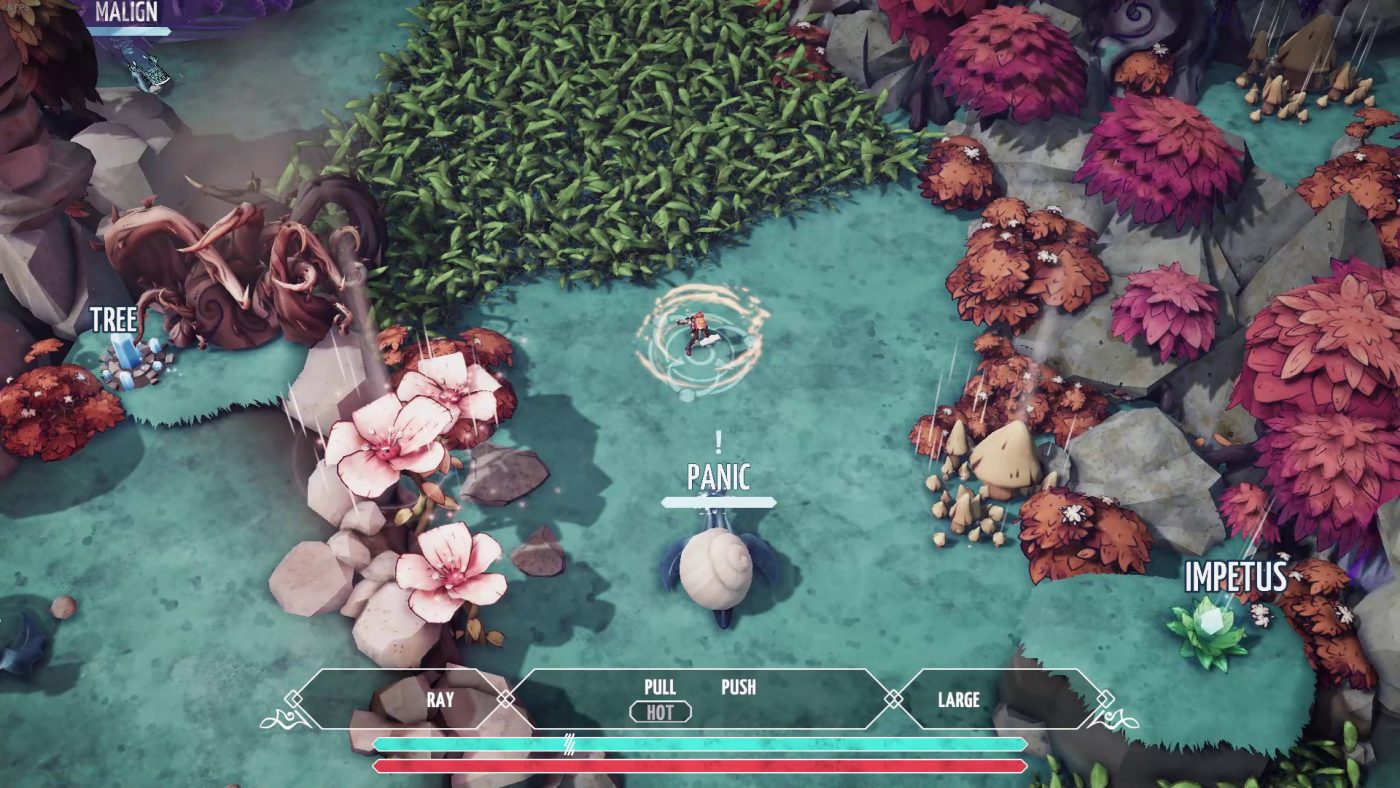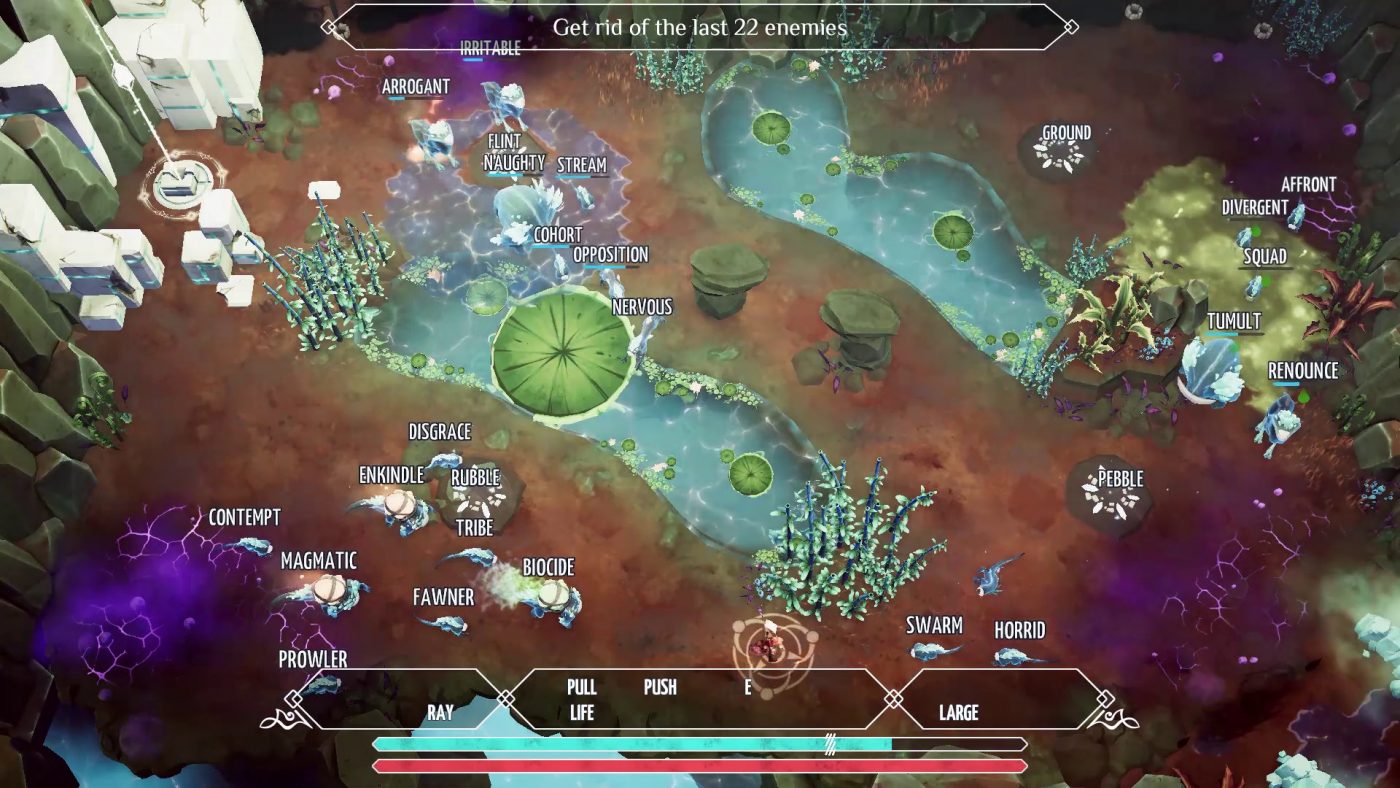The phrase ‘use your words’ means ‘stop being a dunderhead and articulate properly’. Well… let’s say it means that colloquially, eh?
Most games are an even further retreat from verbosity, where keying-in your name at the start of the adventure is pretty much the limit of typing required. There are a few outliers, but video games requiring you to ‘use your words’ are thin on the ground.
Enter Nanotale; an action adventure in the mould of Zelda, but with a twist. You see, in this world you perform all your actions – except movement – by typing. In-universe, you’re a neophyte wizard who’s flexing her intellectual and supernatural spell casting powers by investigating mysterious happenings in the charming (but perilous) environment she inhabits.

As you’d expect, all controls are mapped to the keyboard, with a tap of the space bar prepping you to type. Walking close to an object or enemy will display a word above them, and typing that word will perform an action. It’s a robust and interesting way of interacting with the world.
Enemies will often need several words to be typed to deplete a health bar, so speed is an asset. You are locked in place when typing, often with several creatures approaching at once. The bigger the enemy, the larger and more sophisticated the language to replicate.
It’s not all getting into scrapes though. You can talk to the inhabitants, find out about their lives, help solve their problems and learn more about the flora and fauna knocking about the place. Typing key words you see on screen connects you to the story, guiding your attention. It’s a little bit like school but not horribly off-putting, or preparing you for obsolescence. You also manipulate the environment in a similar way, such as activating a fire trap or opening a barrier with a swift application of the written word.
These elements are where Nanotale really stands-out, as it forces you to slow down and absorb information by interacting with it. More complexity is added as you go, and you’ll discover yourself able to perform powerful, useful abilities by appending keywords from a small but valuable list to the start of some action phrases.

This upgrade path comes in at just the right time, as pacing can be a bit of a problem. There are choke points in the environments that you’ll need to return to through the course of your investigations, and just typing similar words over and over would get repetitive without these new powers.
Getting this sort of stuff right isn’t easy, to which the small number of games trying variations on the theme are scanty. Other than Typing of the Dead and Scribblenauts very few stand out or make any cultural impact, and there’s perhaps nothing here to rock you to your foundations, but the gentle soundtrack and thoughtful approach to connecting with nature provide a decent enough reason to keep going.
Off the beaten track gaming it may be, but there’s enough in Nanotale to add something worthy to a very tiny, very niche genre.

